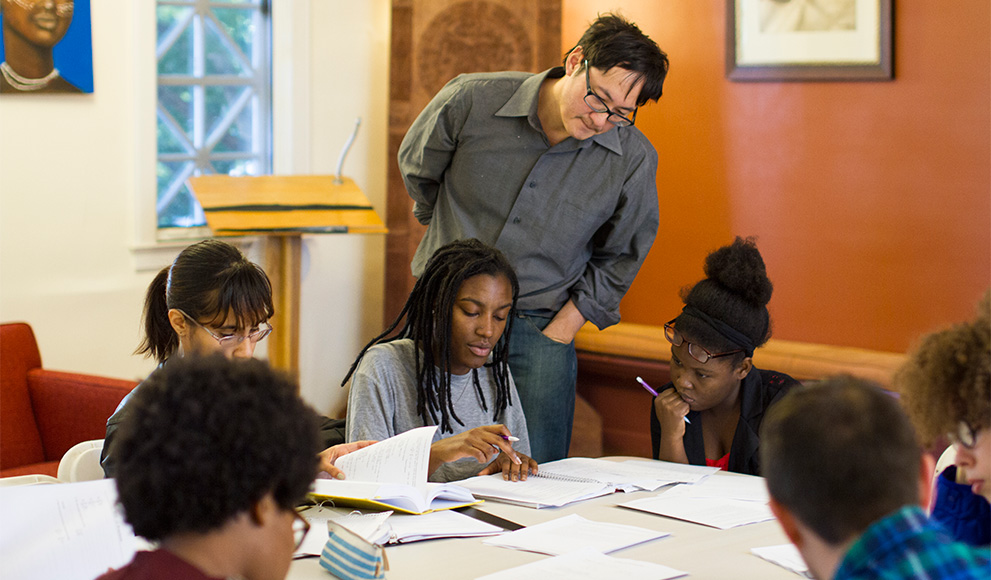Wellesley Calculus Program Recognized By White House Initiative on Educational Excellence for Hispanics

A Wellesley calculus program has been named a “Bright Spot in Hispanic Education” by the White House Initiative on Educational Excellence for Hispanics. The Wellesley Emerging Scholars Initiative (WESI) was one of more than 230 initiatives noted by the White House program in a national online catalog designed to help ensure the educational attainment of the country’s Hispanic community, from cradle to career.
“When I heard we’d been named a Bright Spot, I felt humbled, surprised, and flattered,” said Oscar Fernandez, assistant professor of mathematics, who co-founded WESI with Stanley S. Chang, professor of mathematics.
Fernandez, the son of Cuban immigrants, had to learn English “forcefully” as a child, he said, and took ESL classes throughout elementary school. Even at that young age, he knew the educational model was not aligned with the best way he could learn.
As a high school student in Miami, it was natural to be surrounded by Latinos who were interested in math and science. Yet as an undergraduate in Chicago, the lack of diversity made him feel “out of place,” he said, and the way math was taught was very different from how he was used to learning.
Those experiences helped fuel Fernandez’s desire to start WESI, which is based on a program founded in the 1970s by Philip Uri Treisman at the University of California, Berkeley. The program emphasizes collaborative learning; engaging, challenging problems; and building on students’ strengths, rather than making them feel stigmatized or reinforce stereotypes.
“Wellesley has long struggled to retain students of underrepresented minorities in math and the sciences,” said Chang. “Persistence is so low that the yearly number of STEM majors from these groups is often in the single digits. When Oscar spoke to me about the Treisman model, I knew that we could make an impact.”
Fernandez and Chang launched WESI in 2013 with the modest goal of encouraging persistence and helping underrepresented students complete their calculus courses. Ten students applied to the program that year, with five to seven attending each bi-weekly session. This year, the number of applications was more than twice that.
While those figures may sound small, in the 2013-14 academic year, 58% of all Latinas enrolled in calculus courses applied to WESI. In spring 2015, 36% of all African-American students taking calculus applied to the program.
“While we cannot capture all students in the first few weeks of the semester, we have managed to help many students stay in their courses until the end,” said Chang.
Fernandez and Chang’s data show that WESI also helps many improve their test performance, with 60% of WESI participants earning final grades at or above those of underrepresented students who were not in the program.
What really excites Fernandez, however, is hearing students say that WESI has helped them develop confidence in their ability to succeed in other math classes or to use applied mathematics. In the next few years, he hopes to replicate and adapt WESI for chemistry and computer science. “Research shows that when you change the learning environment to one that is small-group oriented, the success rate of female students and students of color goes up in STEM fields,” he said.
